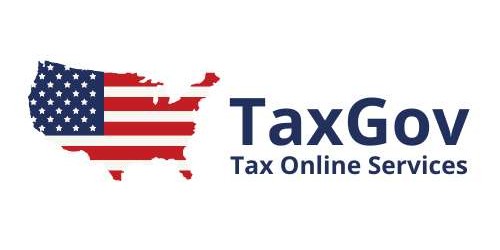Understanding the Purpose of ITINs
Understanding the Purpose of ITINs is crucial for anyone dealing with taxes in the United States without a Social Security Number (SSN). The Individual Taxpayer Identification Number, or ITIN, is a tax processing number issued by the Internal Revenue Service (IRS). It is primarily designed for undocumented immigrants, foreign investors, and non-residents who are required to have a U.S. taxpayer identification number but do not have, and are not eligible to obtain, an SSN. ITINs are crucial for individuals who have tax obligations, such as paying taxes on rental income from U.S. properties or receiving scholarships from U.S. institutions. While an ITIN allows these activities, it’s important to note that it does not provide legal immigration status or work authorization in the U.S. Understanding the specific scenarios in which an ITIN is necessary can help individuals ensure compliance with U.S. tax laws and avoid penalties.
Exploring the Role of EINs in Business
Exploring the Role of EINs in Business reveals the significance of the Employer Identification Number (EIN) for entities operating within the United States. An EIN, often described as a business’s Social Security Number, is issued by the IRS to distinctively identify a business entity. It is essential for conducting essential business operations such as opening business bank accounts, hiring employees, and filing business tax returns. Unlike ITINs, EINs are also required for partnerships and corporations, even if there are no employees involved. The EIN plays a pivotal role in the separate legal identity of businesses and is fundamental to establishing the business’s credibility and compliance with tax regulations. As businesses change structure or ownership, understanding when a new EIN is required can prevent compliance issues and streamline administrative processes.
Need help getting your ITIN?
We can help you apply for your ITIN quickly and easily. Let our team handle the process for you.
How to Obtain an ITIN
How to Obtain an ITIN involves a process established by the IRS to issue tax processing numbers to individuals who qualify. This identification number is only available to people who are required to have a taxpayer identification number but are not eligible to obtain an SSN. To obtain an ITIN, applicants must complete and submit Form W-7, along with valid documentation as proof of identity and foreign status. The form, which is available online, needs to be attached to a valid federal income tax return unless qualifying for an exception. Understanding the documentation requirements and available exceptions can significantly expedite the application process. The process ensures that all individuals are able to meet U.S. tax filing requirements, and knowing how to navigate it is essential for compliance and avoiding legal penalties.
Common Mistakes to Avoid When Applying
Common Mistakes to Avoid When Applying for either an ITIN or an EIN can significantly hinder the processing and approval of these essential tax identification numbers. One common error, particularly with ITIN applications, is failing to provide sufficient documentation to establish both identity and foreign status. Submitting incorrect or incomplete forms, such as omitting important details on Form W-7 for ITINs or Form SS-4 for EINs, can result in processing delays or rejections. Additionally, not clearly understanding the specific requirements, such as the need for a tax return when applying for an ITIN, can lead to complications. Keeping informed about current IRS guidelines and utilizing available resources to verify application completeness can mitigate these issues and facilitate smoother processing.
Applying for an EIN
Applying for an EIN is a straightforward process that business owners and legal entities must undertake to maintain compliance with U.S. federal tax regulations. The IRS has simplified the EIN application process, allowing applicants to apply online, by fax, or mail. Businesses need to complete Form SS-4 to apply for the EIN, which must detail information such as the responsible party’s name and the type of industry the business operates within. The online tax assistant aids businesses by guiding them through the application to ensure that all necessary information is provided. Receiving the EIN immediately when applying online is advantageous for businesses needing to conduct immediate financial transactions or hire employees. Understanding these application steps helps new businesses swiftly legalize their operations, ensuring they can participate fully in various economic activities.
When to Apply for an ITIN or EIN
When to Apply for an ITIN or EIN largely depends on individual circumstances and the timing of financial activities. For those who need an ITIN, it is advisable to apply well ahead of the tax filing deadline, especially if they expect to receive taxable income or need to comply with U.S. tax regulations for financial transactions before the next tax deadline. This is particularly crucial for individuals planning to engage in activities necessitating compliance ahead of the annual tax cycle. In contrast, businesses often need to acquire an EIN immediately upon establishment or before undertaking any activities that require one, such as hiring employees or opening a business bank account. Planning and understanding these strategic timings ensures seamless financial operations and compliance without unnecessary hindrances.
Key Differences Between ITIN and EIN
Key Differences Between ITIN and EIN highlight fundamental distinctions in purpose, eligibility, and usage, essential for individuals and businesses navigating U.S. tax regulations. While both are issued by the IRS, an ITIN is intended for individuals without an SSN who need to comply with U.S. taxpayer obligations. Conversely, an EIN is assigned to businesses, preventing identity confusion and facilitating legal financial transactions. While ITIN does not modify one’s legal status or authorize work in the U.S., an EIN establishes a business’s legal identity for operating within the law. These distinctions are critical for ensuring that individuals and entities apply for the correct identifiers based on their specific needs. Properly understanding and applying these identifiers help avoid unnecessary legal complications and ensure compliance with federal requirements.
Need help getting your ITIN?
We can help you apply for your ITIN quickly and easily. Let our team handle the process for you.
Special Considerations for Non-U.S. Residents
Special Considerations for Non-U.S. Residents focus on the unique scenarios in which international taxpayers must obtain an ITIN or EIN. For non-U.S. residents, obtaining an ITIN can be crucial for reporting U.S. income or complying with U.S. tax obligations even when residing abroad. Understanding the specific documentation required for non-residents, as well as exceptions to attach a tax return, is vital. Businesses owned by non-U.S. residents may require an EIN to engage in tax treaties with the U.S. or to open U.S. bank accounts for business operations. Recognizing the special requirements and preparing for potential challenges, such as delays in mail submissions or international correspondence, can aid non-U.S. residents in effectively managing their U.S. tax responsibilities.


